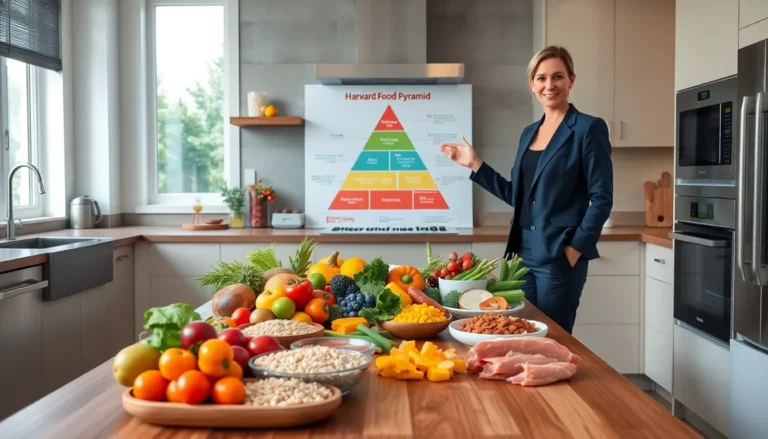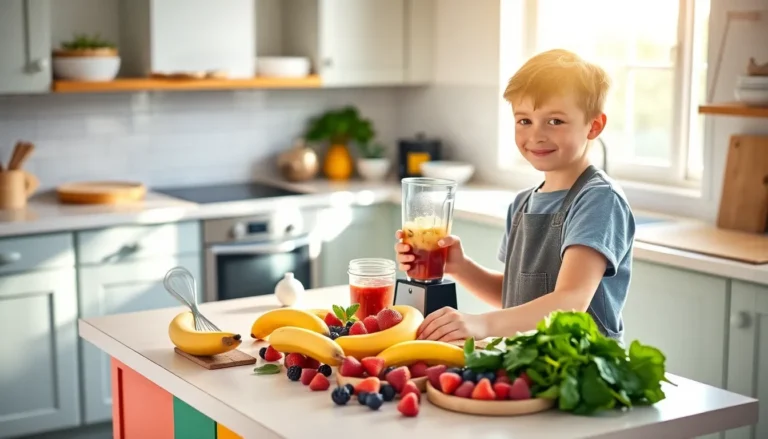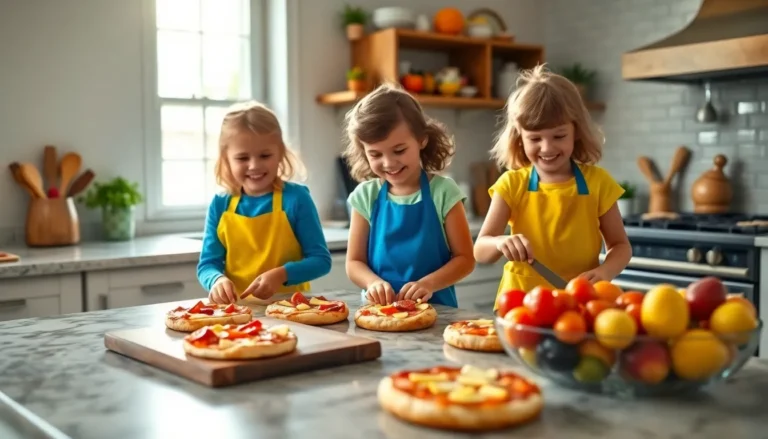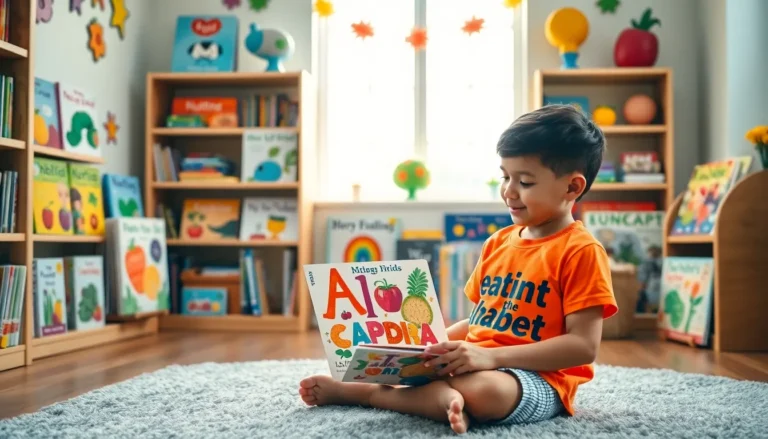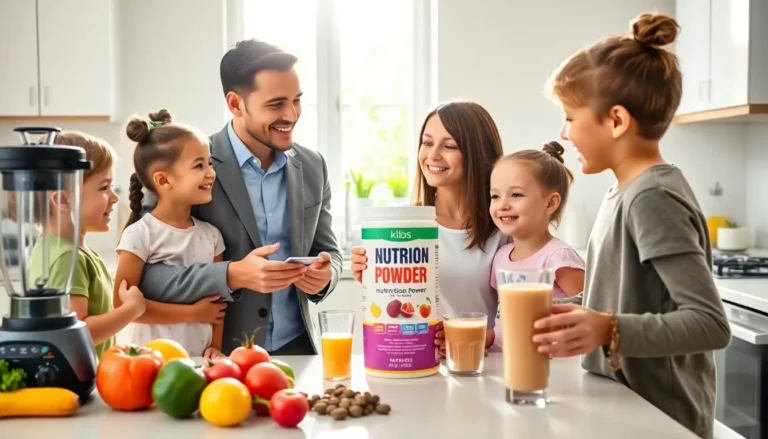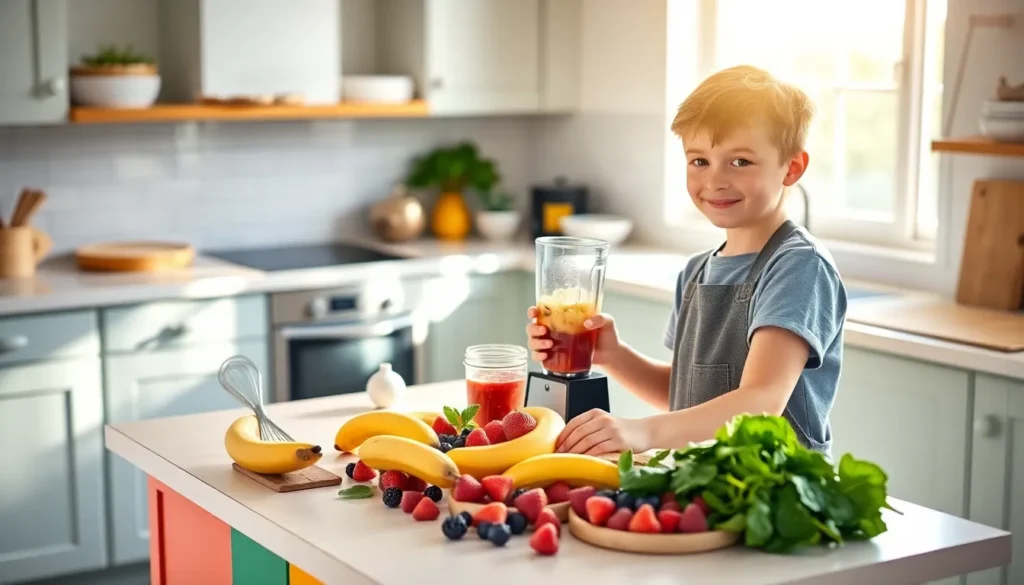Table of Contents
ToggleCooking isn’t just about filling up the tummy: it’s a gateway to creativity and independence. Have you ever watched a nine-year-old’s face light up at the sight of their very first homemade pancake? Now that’s priceless. Let’s immerse and discover how cooking can empower kids, turning them into little culinary wizards, armed with just a whisk and a safety-first attitude. Ready? Let’s whip up some fun.
Why Cooking Is Important For Kids
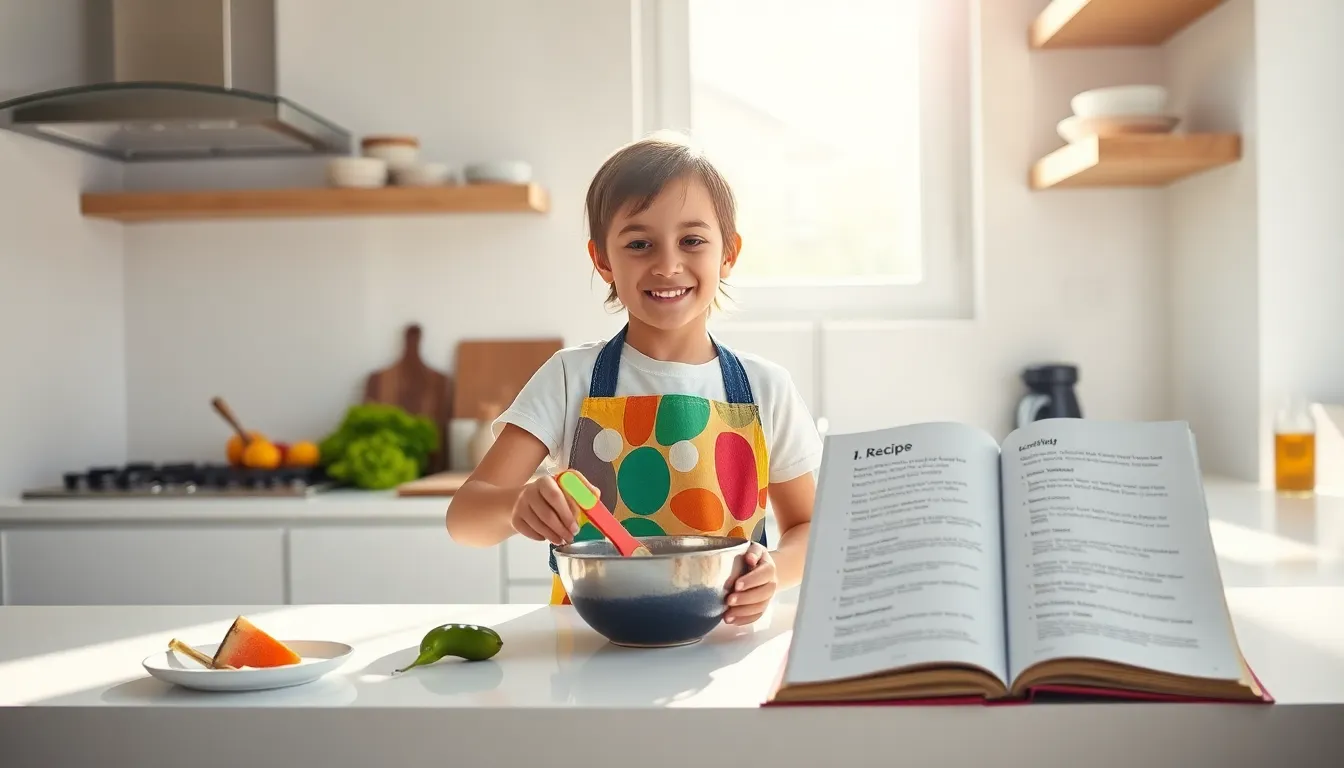
Cooking offers numerous benefits that extend far beyond the dinner table. First, it promotes independence. When kids whip up a snack or breakfast themselves, they gain confidence. This simple act boosts their self-esteem and helps them feel accomplished.
It also enhances cognitive skills. Following a recipe requires reading, math, and even a bit of science. Understanding measurements, timing, and temperature all come into play, providing a hands-on learning experience that school can’t always capture.
Also, cooking cultivates creativity. Kids can experiment with flavors, textures, and presentations, the world becomes their culinary canvas. Encouraging your child to explore their taste buds opens the door to a lifetime of tackling new challenges in and out of the kitchen.
Simple Recipes To Get Started
Starting with simple recipes ensures that young chefs have a successful experience in the kitchen. Here are some delightful options:
Breakfast Recipes
- Overnight Oats: This is a no-cook option where kids can mix oats, milk, and their favorite toppings, think fruit or nuts, and let it chill in the fridge. Imagine waking up to breakfast already made.
- Fruit Smoothies: Toss some bananas, berries, and yogurt in a blender and hit the button. What kid wouldn’t love creating their own colorful smoothie?
- Scrambled Eggs: Simple to prepare, scrambled eggs can be seasoned with salt and pepper. Kids can add cheese or veggies, making breakfast both nutritious and fun.
Snack Recipes
- Veggie and Hummus Dippers: Kids can slice cucumbers and carrots to dip into store-bought or homemade hummus. A fulfilling snack option that’s healthy and crunchy.
- Peanut Butter Banana Toast: Spread peanut butter on whole-grain toast and top it with banana slices. A sweet and filling bite that’s great for raising energy levels during the day.
- Yogurt Parfaits: Layer yogurt with granola and fruits in a cup. This visually appealing snack gives kids the chance to create their own delicious masterpiece.
Lunch Recipes
When it comes to lunch, creativity can shine. Here are a few easy recipes:
- Wrap It Up: Let the kids choose their favorite deli meats, cheese, and veggies. Roll it all up in a tortilla for a fun and easy meal. Encouraging them to create their own wraps allows for a variety of tastes to be explored.
- Mini Pizzas: Using English muffins or pita bread as the base, kids can spread tomato sauce, add cheese, and customize with their favorite toppings. Toss them in the oven to melt the cheese.
- DIY Lunchables: Kids can assemble their own plates with crackers, sliced cheese, pepperoni, and some fruit on the side. Making it themselves makes them more likely to eat it.
Creative Dinner Ideas
Dinner can be as exciting as the previous meals. Here are a few suggestions:
- Taco Night: Provide all the fixings, taco shells, ground beef or beans, and favorite toppings like lettuce, cheese, and salsa. Each child can construct their own tacos as they please.
- Pasta Bar: Set up a station with different types of pasta, sauces, and veggies. Kids can mix and match, creating their perfect pasta dish while also learning about different ingredients.
- Stuffed Peppers: Let kids hollow out bell peppers and fill them with a mixture of rice, beans, and cheese. A colorful dish that’s both nutritious and fun to prepare.
Safety Tips For Young Chefs
Cooking can be a lot of fun, but safety remains the top priority. Here are essential tips to keep in mind:
- Supervision is Key: Ensure young kids are always supervised in the kitchen, especially when using knives or the stove.
- Teach Proper Knife Skills: Using child-safe knives can help kids gain confidence when chopping ingredients without risking injuries.
- Encourage Hand Washing: Teach the importance of hygiene. Hands should be washed before and after cooking, especially after handling raw ingredients.
- Use Oven Mitts: Remind kids to use oven mitts when handling hot items. This habit helps reinforce safe practices from early on.
- Stay Hydrated: Encourage them to drink water while cooking. Staying hydrated maintains energy levels during their culinary adventures.

